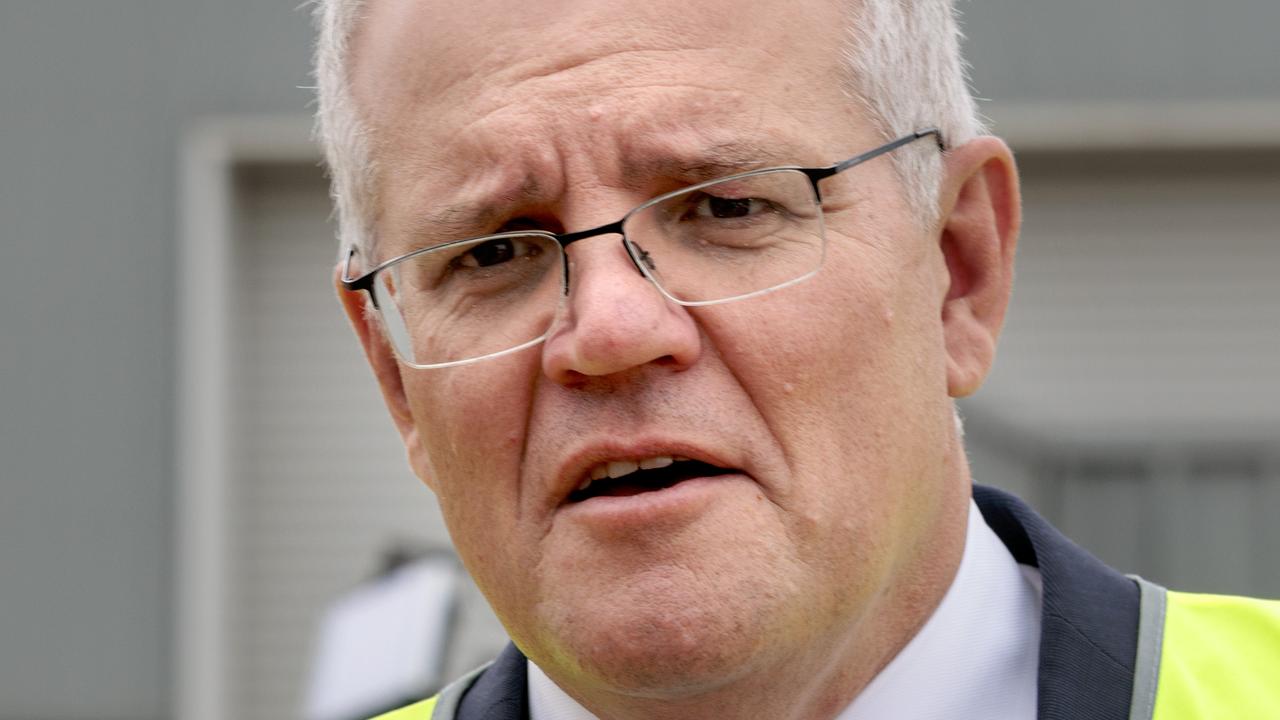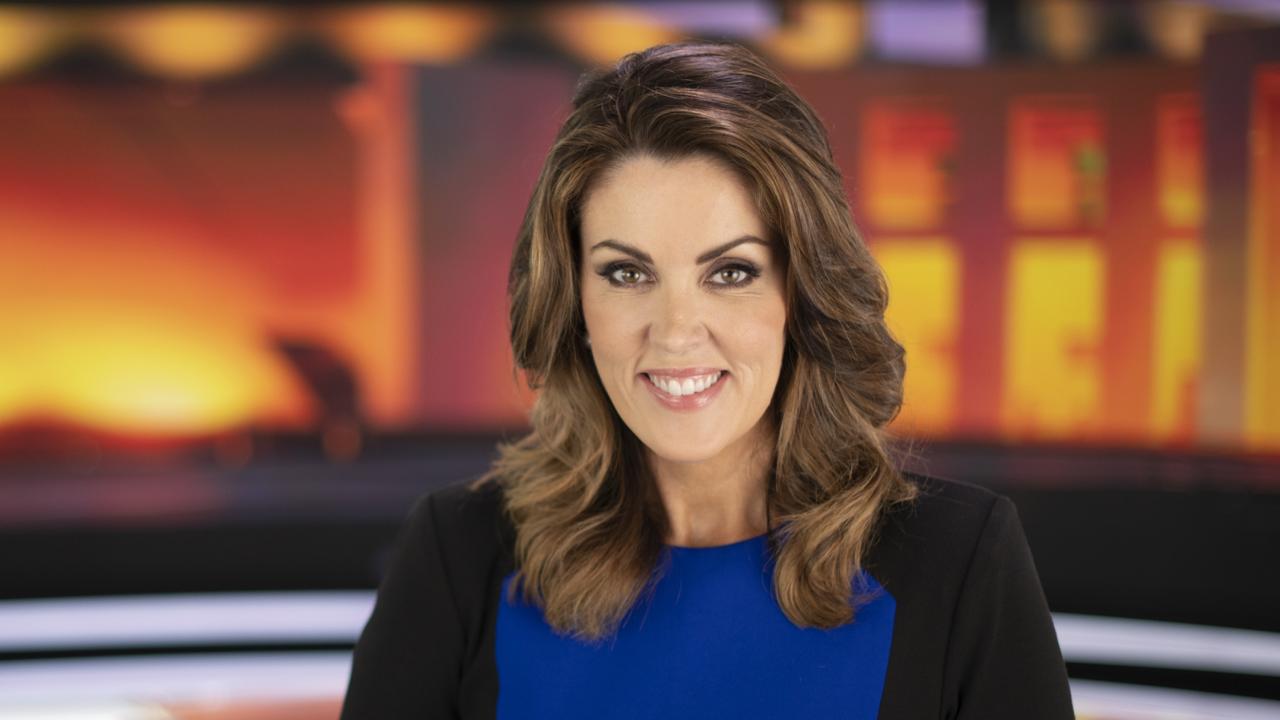The race is on to woo millions of Australians who will vote early — well before the May 18 poll
Australia will go to the polls on May 18, but millions will have already cast their votes early — and it’s a growing issue.
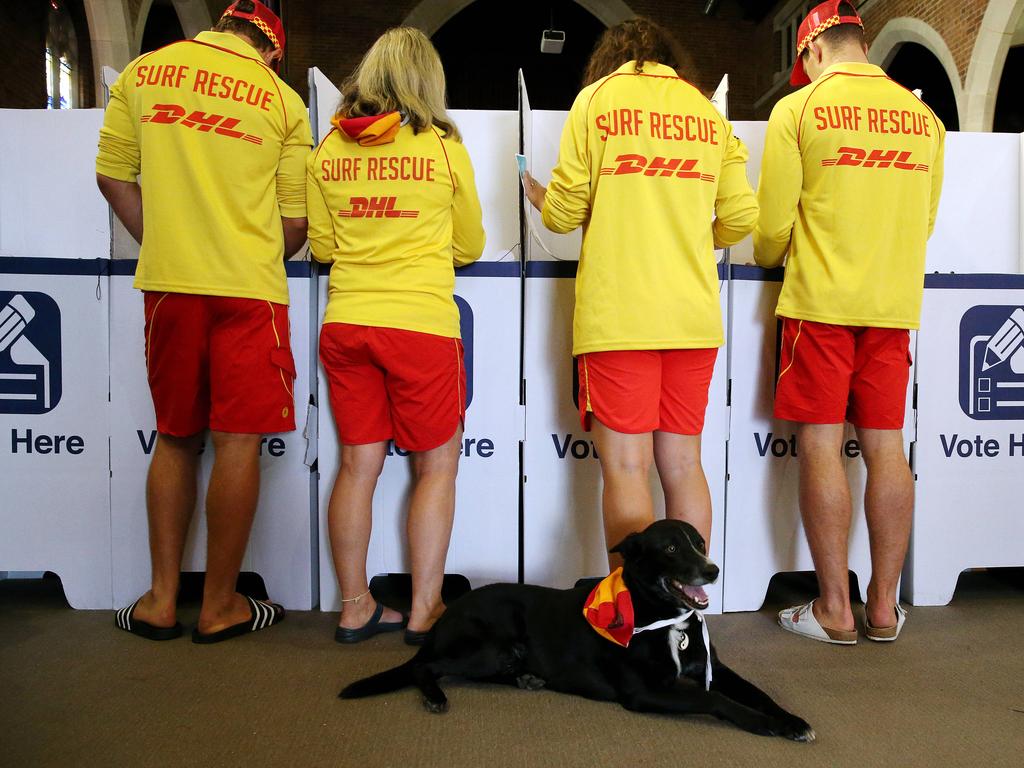
Australia will go to the polls on May 18, but millions will have already cast their votes long before then.
The number of people who pre-poll or complete postal ballots has grown significantly over the past decade, electoral authorities say.
At the last federal election in 2016, a staggering 4.5 million people voted early — representing some 31 per cent of eligible voters.
The figure will almost certainly be higher again this time around, according to Zareh Ghazarian from Monash University’s School of Social Sciences.
“There’s a great deal of convenience for those not wanting to battle the crowds on polling Saturday or who can’t get there,” Dr Ghazarian said.
“It does have an impact though on the political debate and how campaigns are run, and it might have impacts on the choices people are making.”
Early voting centres around Australia opened from Monday, April 29. The Australian Electoral Commission has a full list of locations and opening times.
BIG IMPLICATIONS
At the 2016 election, a report by the Australian Election Study found a large chunk of Australians were swayed by what went on during the campaign.
Its analysis found 42 per cent of voters came to their decision in the five weeks leading up to polling day.
It means those who vote early make “a bit of a gamble” that nothing might occur that could change their mind, Dr Ghazarian said.
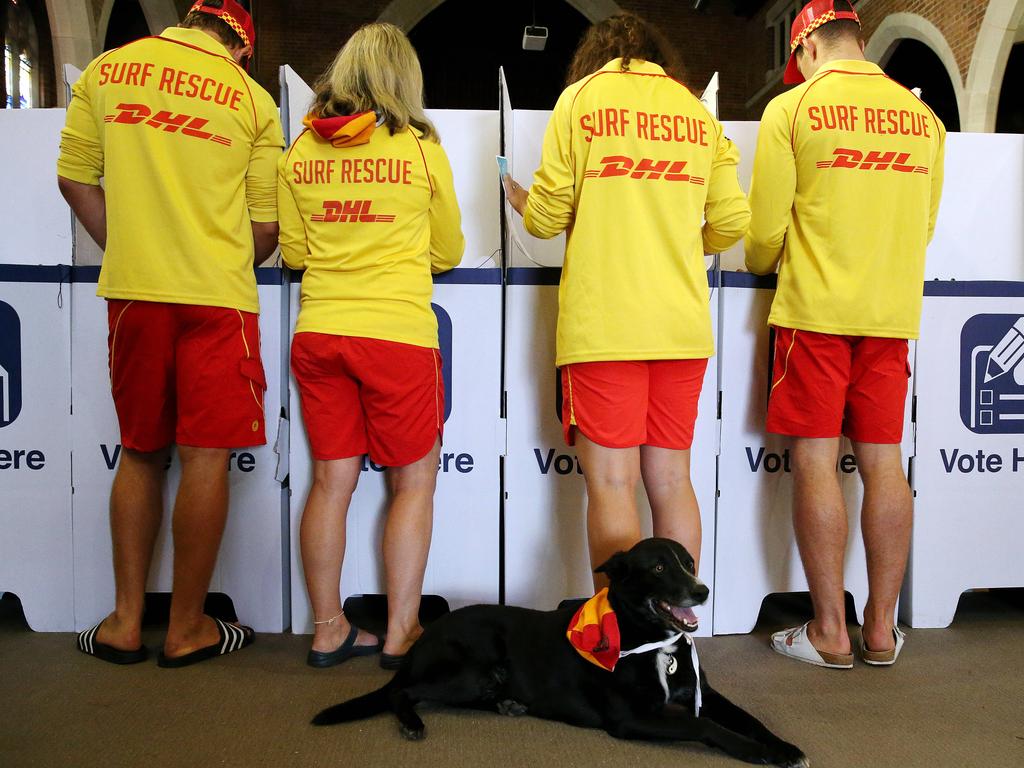
“It means that for those who have voted early, parties or candidates might say something or propose a policy that they don’t agree with, but you’ve already cast your vote,” he said.
In the Wentworth by-election last year, held after Malcolm Turnbull quit politics in the wake of losing the Liberal leadership, the challenges of early voting played out.
Adrian Beaumont from the University of Melbourne’s School of Mathematics and Statistics wrote pre-polling was favouring the Liberal candidate Dave Sharma in the first few weeks.
“It is clear from this data that Wentworth voters shifted decisively against the Liberals in the final days,” Mr Beaumont said.
There was a “big drop” in Mr Sharma’s percentage share of postal votes as the campaign wore on, he said.
“I think the most important reason for this shift was Coalition senators voting with Pauline Hanson on her ‘It’s OK to be white’ motion,” Mr Beaumont said.
“This motion would have absolutely no appeal to an electorate with a high level of educational attainment relative to the overall population.”
RELATED: Don't miss a thing with news.com.au's full election coverage
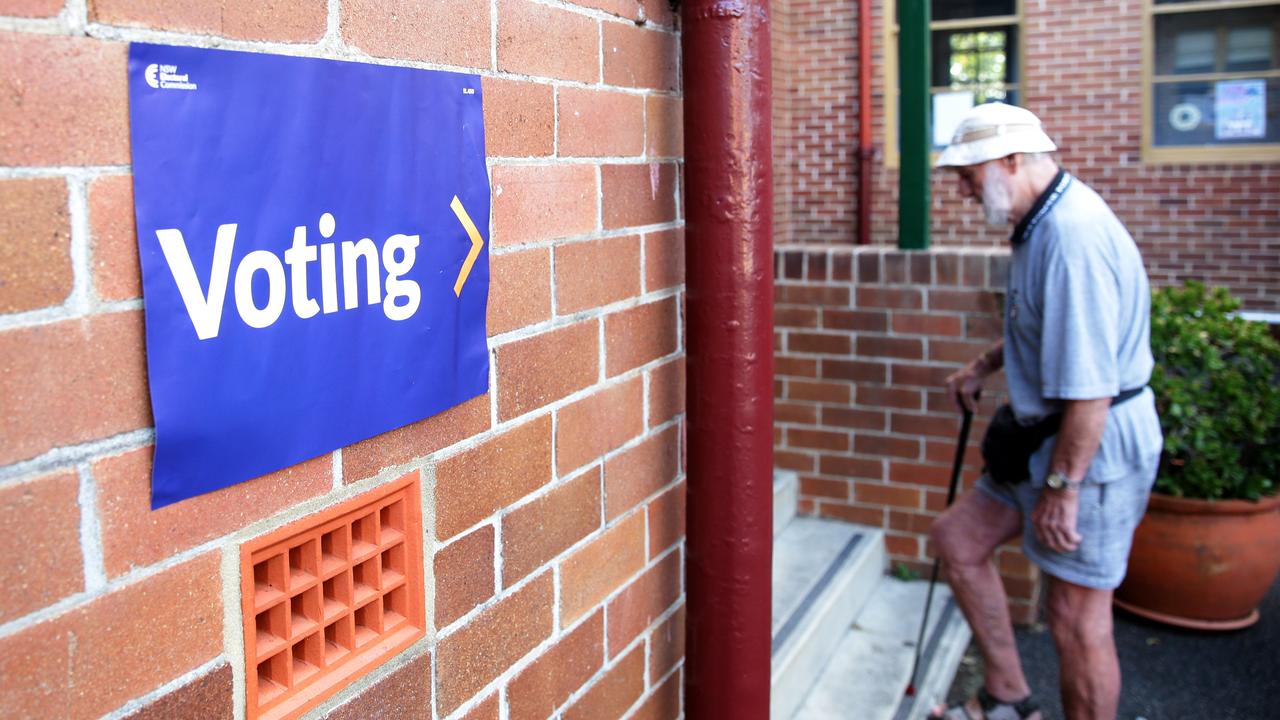
Anecdotally, swing voters — or those not strongly prescribed to a party — decide in the final week and days of a campaign.
Election campaigns are usually run over four weeks and have tended to follow a similar pattern, according to Peter John Chen, senior lecturer at the University of Sydney’s School of Government and International Relations
Those four distinct time periods are:
• Frame: The candidate sets out their campaign.
• Deframe: The candidate criticises their main opponent.
• Explain: The candidate discusses their key policy positives.
• Acclaim: The candidate moves to a positive commitment position close to polling day.
“The increased availability of early voting options will mean there is a stronger incentive for parties to ‘win’ the political communication game in each day of the campaign,” Dr Chen said.
It used to be the final week of a campaign was the most active, Dr Ghazarian said.
The big ticket policies were saved until then to ensure maximum impact with those who might not have switched on to the messaging until the final moment.
The growth in early voting flipped this strategy on its head, Dr Ghazarian said.
“Parties can no longer have campaigns that leave energy and big announcements until the final week because people might’ve already voted,” he said.
“Election day can no longer be thought of as such — we should consider it as the last day people can vote.
“A lot of people, large chunks of people, will have voted before. It does change the complexion of Australian politics and the way campaigns are run and managed.”
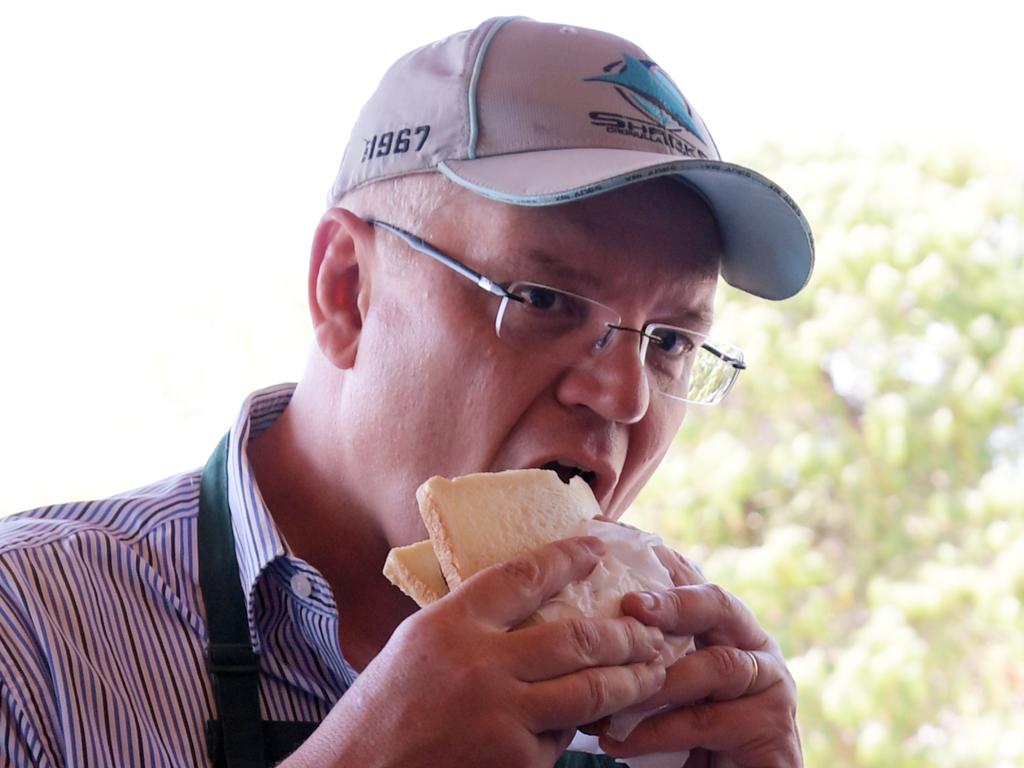
Offering people the flexibility to participate in the democratic process regardless of their circumstances was a positive thing, he said.
“The concerns I have for those voting early is their confidence in their choice of candidate or party,” Dr Ghazarian said
“I think if people are willing to support a party no matter what they say or promise, vote early. For those who are actively monitoring what parties are promising, they might be better suited to taking that all on board and voting on May 18.”
More than 600 pre-polling centres operate in the weeks leading up to election day both in Australia and in major cities abroad.
In addition, some 41 remote mobile voting teams visit around 400 locations deemed too far from polling places.
Over the past decade, Labor and the Coalition have devoted growing resources and used armies of volunteers to reach voters who go to pre-polling centres.
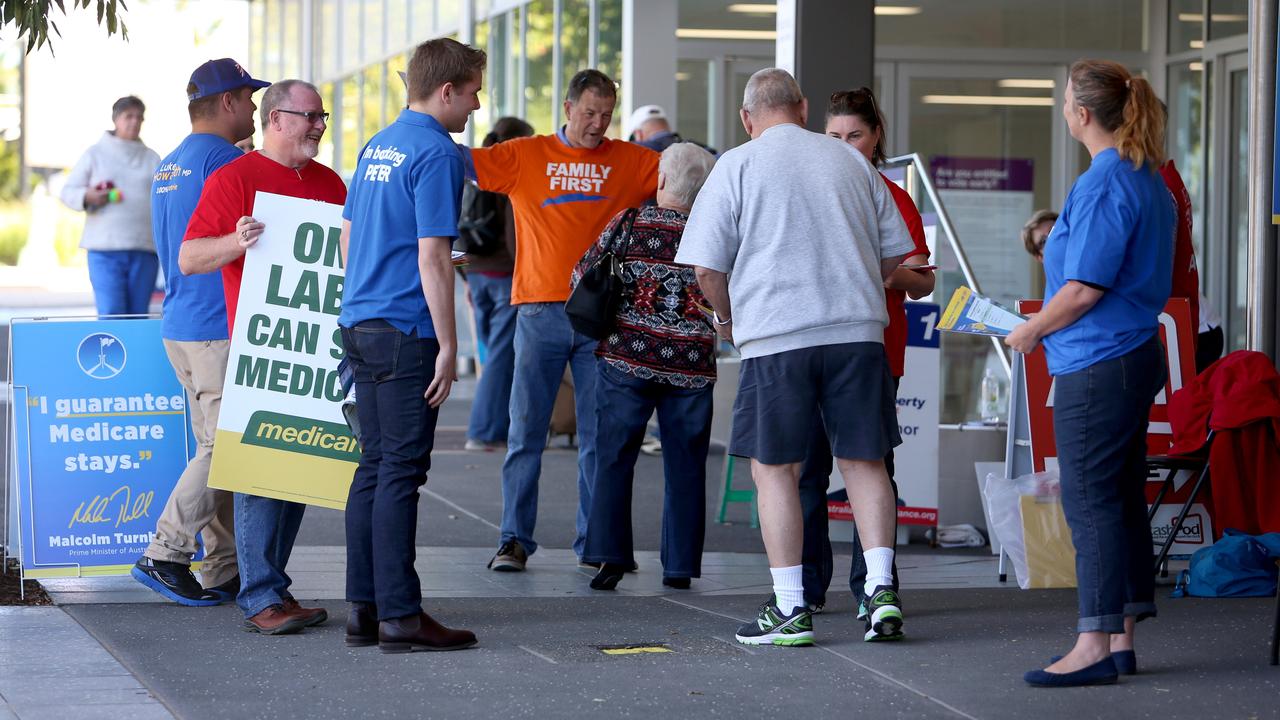
“The beneficiaries generally are the major parties with the resources to deploy people at early polling centres, while it’s harder for minor parties or independents to do that,” Dr Ghazarian said.
But perhaps the biggest losers out of this convenience-driven trend are local communities.
“Those local community groups that count on a boost of income from cake stalls and sausage sizzles, the foot traffic will be down, the people won’t be there in the numbers they once were,” Dr Ghazarian said.
‘AGAINST THE SPIRIT’
The main argument against early voting is it undermines the function and intended spirit of elections, according to Dr Chen.
Wisdom has always been that citizens who are largely absent from the day-to-day political process get to “stop once every few years and have a good, hard think before voting”.
“The idea is that the contest of ideas runs right up to polling day,” Dr Chen said.
“And the electronic media blackout just before the poll gives us all time to retire to our homes unmolested to reflect, weigh up what policies matter most to us and consider all the pros and cons, opportunity costs, risks and trade-offs.”
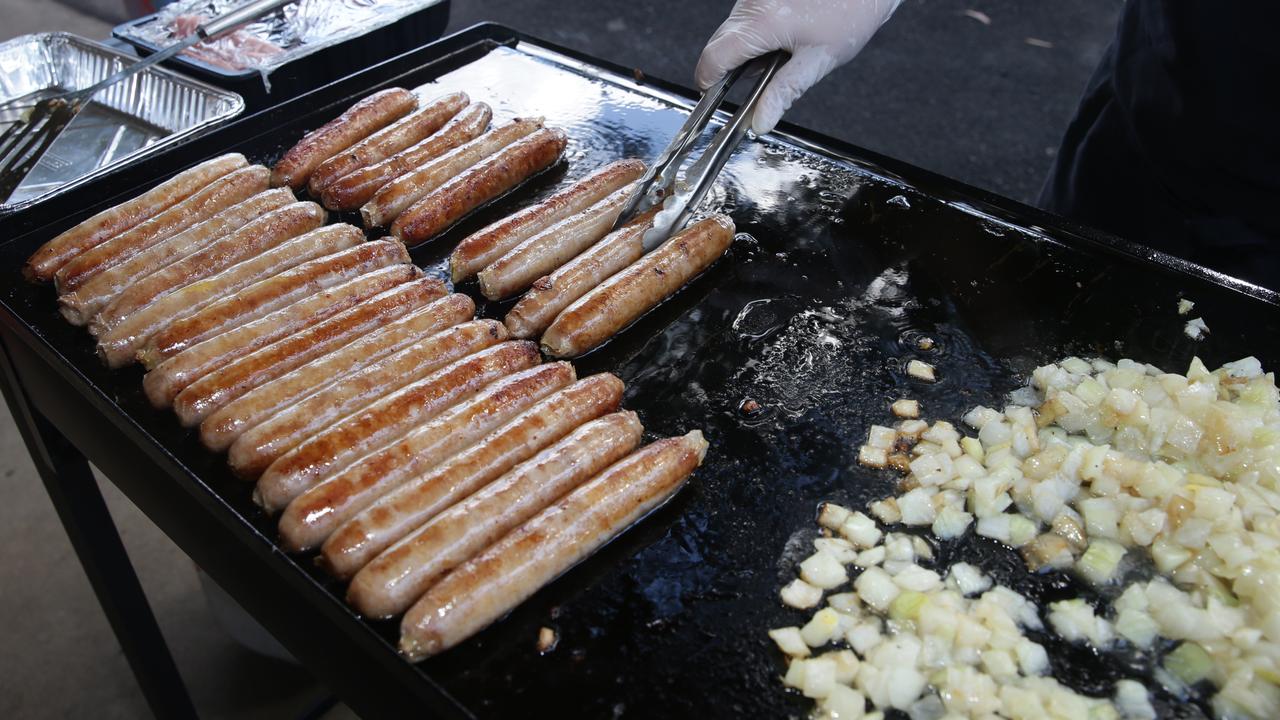
By voting early, it’s argued millions could miss out on being part of the full process.
“There is another argument against early voting: that it undermines an important social cohesion process, emphasising collectivity and equality, which is the point of having elections in the first place,” Dr Chen said.
When the notion of “gathering together” on election day is diminished, opponents argue the key “civil ritual” of being democratic is threatened.
“These perspectives do have merit, but they overstate the significance of elections … elections can be important civic rituals, but they can also be ritualistic,” he argued.
“Elections are often not competitive but simply serve to re-endorse an existing government.”
Although, with successive polls putting Labor ahead of the Coalition on a two-party preferred basis but Bill Shorten lagging well behind Scott Morrison as preferred PM, this election might be one of the more competitive in years.

WHO CAN VOTE EARLY?
Australians who want to vote before the dedicated election day must make a declaration outlining their reasons.
But a quirk of the legislation means simply showing up at a pre-poll location is seen as a declaration. The rules are stricter for postal votes.
But generally speaking, a voter may be eligible to vote early if they are going to be outside their enrolled electorate on May 18, including overseas or interstate, live more than eight kilometres from a voting centre, are due to work and can’t leave, have an illness or disability or are an approved silent elector.
The number of pre-poll voters in 2016 was almost double the amount a decade earlier.
Nathaniel Reader from Swinburne University’s Institute for Social Research wrote after the last election that electoral authorities knew it was all about convenience.
“People are also simply ‘busier’ and less inclined to give up their leisure time to vote,” Dr Reader wrote.
Continue the conversation shannon.molloy@news.com.au


